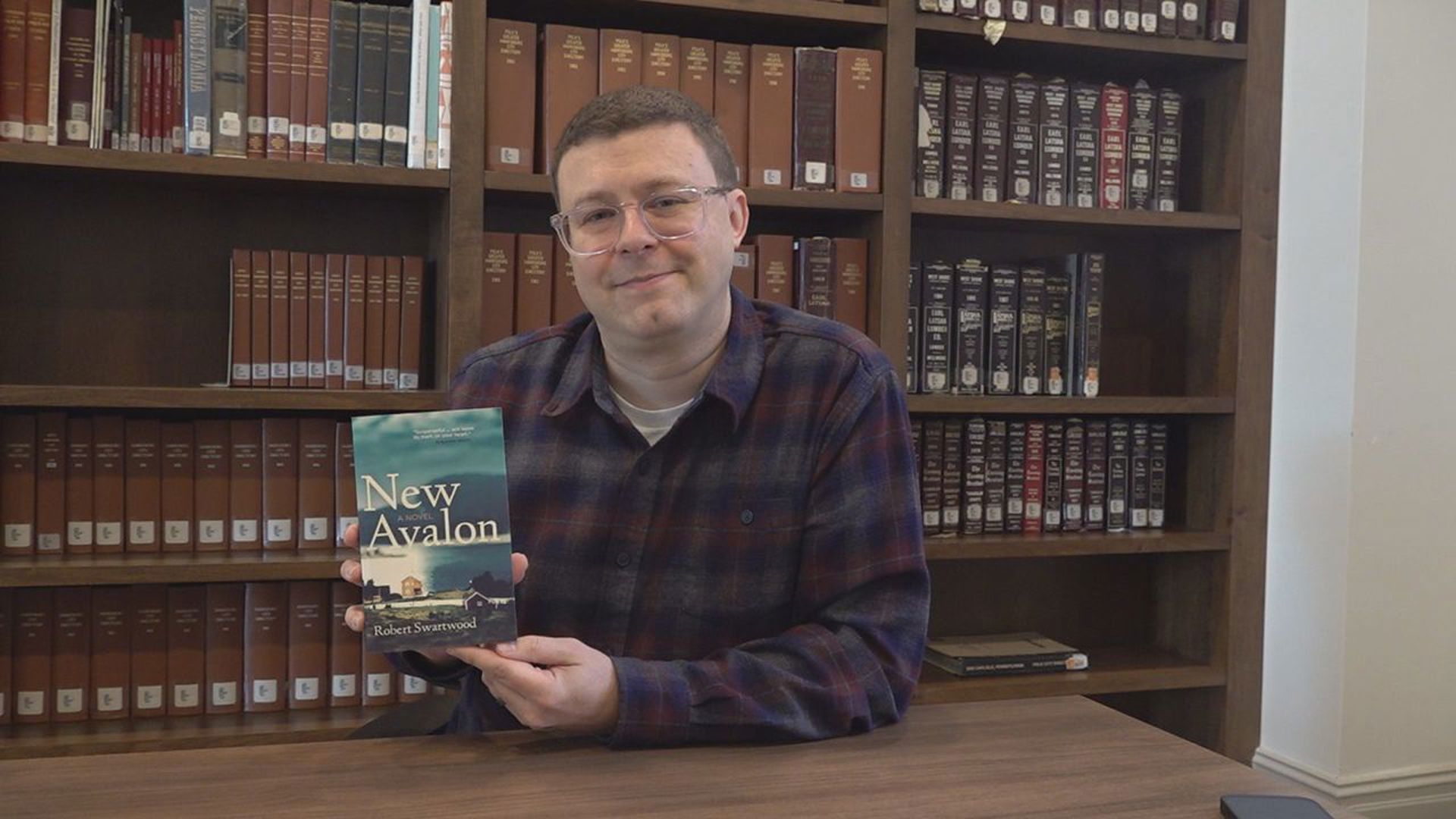HARRISBURG, Pa. — Thriller writer Robert Swartwood was inspired by Stephen King novels when he was just a boy.
In “New Avalon,” the Harrisburg-based author imagines what life would be like for Princess Diana if she had faked her death and fled to the United States.
The FOX43 Book Club pick of the month is written in the oft unemployed second person to give a feeling of detachment. Readers step into the shoes of the bodyguard assigned to protect Princess Diana after her fictional top-secret faked death.
“I've always been a fan of second person… I feel like second person is very effective when it's utilized correctly," Swartwood said. "A lot of readers are not used to it because they don't see it often. So it often scares them off. I feel like nowadays, though, it's becoming a little bit more mainstream; you're seeing it.”
He lets each novel tell him how the story will best be communicated.
"I found that when writing books sometimes—at this point I've written so many—that I just get a sense before I start the best point of view," Swartwood said. "But there are times where again, writing short stories or whatever else, I might start writing it in a first person or third person and then realize it just doesn't feel right."
By writing "New Avalon" in the removed second person "you," Swartwood helps his readers feel disconnected from the story in the same way the bodyguard feels at arms length to the fake life he lives.
"I think because we have that almost, this detachment of who the character is, it makes more sense to do it in second person," the author said.
Swartwood has been writing ever since he read his first Stephen King book, "Insomnia."
“I loved it, and I remember finishing it and just thinking like, okay, this is what I want to do with my life," the author said. "So from there, you know, I was just always writing short stories in high school, and in college wrote my first book. And then it was just this thing I always have the passion for.”
The author got experience honing his writing skills while editing content for a friend's horror/dark fantasy magazine in high school and college.
"Just reading just stories—not good stories—I really feel it helps you see what not to do, because oftentimes people are reading stuff that's been published, stuff that's been edited, you know, over and over and that's polished," he said.
He recommends that aspiring writers read everything they can—including both acclaimed and reviled works—to improve their own craft.
“Actually reading things that are nowhere near ready to be published or nowhere near polished really gives you a good sense of, again, like what not to do,” Swartwood said.
He says the best practice is simply writing, even if the piece doesn’t turn out the way you wanted.
“And I think it's always important to remember, too, that first drafts are meant to be awful," the writer said.
”You just have to always remind yourself it doesn't have to be perfect the first time, the second time or third time... The thing about books is they're always evolving as you're writing them.”
Swartwood has learned this lesson himself. The author says when he first starts writing a book, he doesn't go back and edit as he goes or even every day, preferring instead to let the words pour out onto the page.
"I typically, at this point in my career, I try to just do like the Nora Roberts 'vomit draft' method where I just want to get the story out as quickly as possible," Swartwood said.
"I really just like starting with either a character or a situation, then just seeing what happens."
Swartwood works in his writing around a day job. He says having to split his time helps keep him focused.
"I think it's better because I have, then, less time at night that forces me to really want to find time," he said.
The author says people who are truly dedicated to their craft will always find time to write, and only having a few minutes here or there shouldn't dissuade someone from picking up their pen.
"I mean, half the times I'll hear from writers where they're just like, 'I don't have time to write a book,' and it's, you know, it's not like you're expected to write the book in a week or a day," he said. "I mean, you just, if you sit down, you write even a page or quite honestly, even a paragraph or two, sometimes writers do that.
"I guess it sounds cheesy, but it's just, you know, you just can't give up if that's what you really want to do. It's just, you have to put in the work. Like, it's not easy."
Writing around other responsibilities hasn't slowed Swartwood down—his latest book, "Enemy of the State," just came out earlier this year. It is the sequel to "The Killing Room," which won the International Thriller Writers Award for best e-book original novel in 2024.
"I sort of end on this epilogue that kind of leaves it on a cliffhanger that leads you right into the second book," Swartwood said. "I often try to do that with especially series books, kind of think about a 'Marvel' end credits type thing that sets you up for what's gonna happen in the next one.
"It opens up with just nonstop action."
Those who want to keep up with Swartwood online can follow along on his website, Instagram, Twitter, YouTube and Facebook. The author talks more about his books, writing process, life and advice for up-and-coming authors in the full interview below:
Among other projects in the works, Swartwood plans to release an Audible original novel next year.


